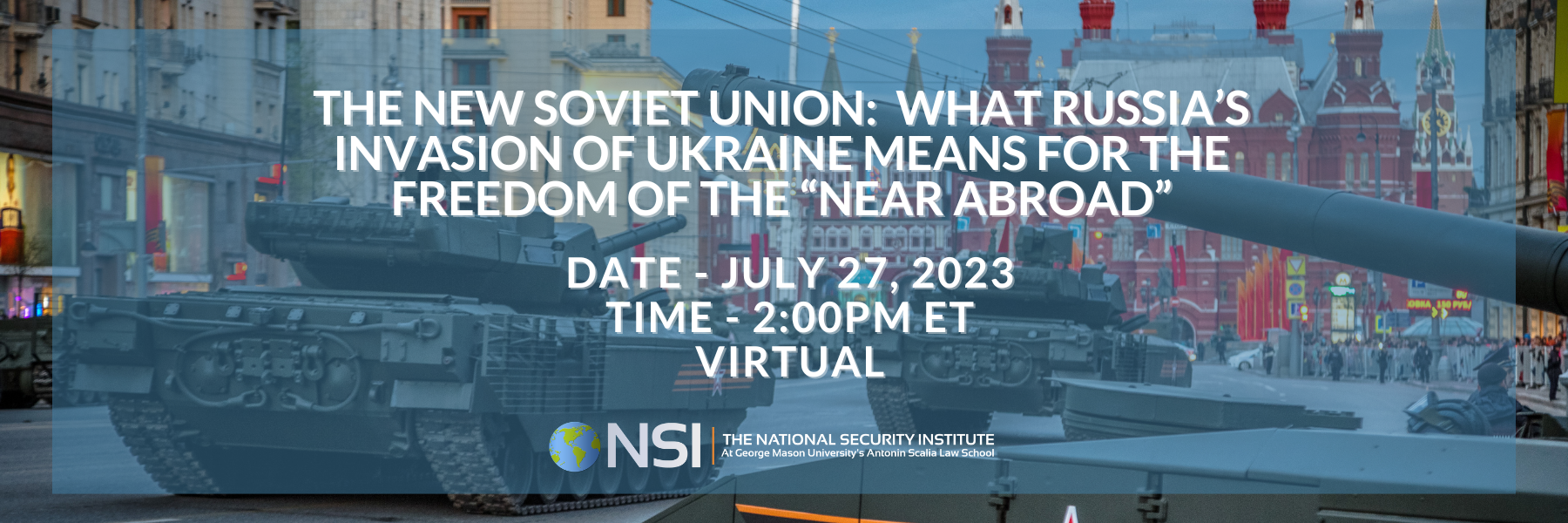
Russia’s unprovoked invasion of Ukraine has re-awoken fears not felt since the Cold War of a European-wide conflict between the East and West. For many of the former Soviet states that make up Russia’s “Near Abroad,” the invasion has them asking whether they may become the next Ukraine or Georgia.
NSI welcomed former Deputy Secretary General of NATO Rose Gottemoeller for a fireside chat to examine the implications of the invasion of Ukraine on Russia’s policy towards their “Near Abroad,” how these former Soviet nations are working to preserve their freedoms in the face of Russian aggression, and what the U.S. can do to support state sovereignty and democratic principles on the European continent.
Speakers:

Rose Gottemoeller is the Steven C. Házy Lecturer at Stanford University’s Freeman Spogli Institute for International Studies and its Center for International Security and Cooperation.
Before joining Stanford Gottemoeller was the Deputy Secretary General of NATO from 2016 to 2019, where she helped to drive forward NATO’s adaptation to new security challenges in Europe and in the fight against terrorism. Prior to NATO, she served for nearly five years as the Under Secretary for Arms Control and International Security at the U.S. Department of State, advising the Secretary of State on arms control, nonproliferation and political-military affairs. While Assistant Secretary of State for Arms Control, Verification and Compliance in 2009 and 2010, she was the chief U.S. negotiator of the New Strategic Arms Reduction Treaty (New START) with the Russian Federation.
Prior to her government service, she was a senior associate with the Carnegie Endowment for International Peace, with joint appointments to the Nonproliferation and Russia programs. She served as the Director of the Carnegie Moscow Center from 2006 to 2008, and is currently a nonresident fellow in Carnegie’s Nuclear Policy Program. She is also a research fellow at the Hoover Institution.
At Stanford, Gottemoeller teaches and mentors students in the Ford Dorsey Master’s in International Policy program and the CISAC Honors program; contributes to policy research and outreach activities; and convenes workshops, seminars and other events relating to her areas of expertise, including nuclear security, Russian relations, the NATO alliance, EU cooperation and non-proliferation.

Jennifer Cafarella is the Chief of Staff and inaugural National Security Fellow at the Institute for the Study of War (ISW). Her work focuses on US defense strategy including how the United States must adapt to current and future threats, with particular depth on Syria, jihadism, and the Middle East. Her expertise has been recognized through fellowships at the International Centre for the Study of Radicalisation at King’s College in London as well as George Mason University’s National Security Institute.
Ms. Cafarella is also responsible for leading ISW’s simulation exercises as well as its efforts to develop detailed recommendations on how to achieve U.S. objectives abroad. Ms. Cafarella has conducted such exercises for various U.S. military units deploying overseas. In 2015, she participated in a multi-week assessment mission in the Middle East focused on the conflicts in Iraq and Syria at the invitation of senior U.S. Army commanders. She regularly briefs military units preparing to deploy on a range of subjects including Syria, ISIS, and Russia.
Ms. Cafarella led ISW’s Syria team from 2014-2017 before becoming ISW’s Director of Intelligence Planning from 2018-2019. She is a graduate of ISW’s Hertog War Studies Program and was the Institute’s first Evans Hanson Fellow, which sponsors outstanding alumni of the War Studies Program and seeks to help build the next generation of national security leaders. Ms. Cafarella received her B.A. from the University of Minnesota-Twin Cities in Global Studies with a focus on the Middle East.
Ms. Cafarella has written extensively on Syria, Iraq, Al Qaeda, and ISIS. Her essays have been published by Foreign Affairs, The Hill, and Fox News, among other outlets. She has appeared extensively in the media, including on C-SPAN, CNN, Fox News, and others. Her analysis has been cited widely in print media including by The Wall Street Journal, The New York Times, Newsweek, CNN, NPR, Voice of America, the BBC, and USA Today.
